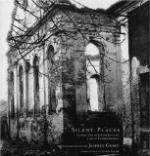Half measures or timid shrinkings would not do. Every one had to plunge boldly into the woods, had to seize and drag forth, at whatever cost of shower-bath the wilderness might levy, all the dead wood he could find. Then the value of the birch-bark envelope about the powdery touch-wood became evident. The fire, at first small and steamy, grew each instant. Soon a dozen little blazes sprang up, only to be extinguished as soon as they had partially dried the site of wigwams. Hot tea was swallowed gratefully, duffel hung before the flames. Nobody dried completely, but everybody steamed, and even in the pouring rain this little warmth was comfort by force of contrast. The sleeping blankets were damp, the clothes were damp, the ground was damp, the air was damp; but, after all, discomfort is a little thing and a temporary, and can be borne. In the retrospect it is nothing at all. Such is the indian’s philosophy, and that is why in a rain he generally travels instead of lying in camp.
The storm lasted four days. Then the wind shifted to the north, bringing clearing skies.
Up to now the river had been swift in places, but always by dint of tracking or poling the canoes had been forced against the quick water. Early one forenoon, however, Haukemah lifted carefully the bow of his canoe and slid it up the bank.
CHAPTER SEVEN
The portage struck promptly to the right through a tall, leafy woods, swam neck-high in the foliage of small growth, mounted a steep hill, and meandered over a bowlder-strewn, moss-grown plateau, to dip again, a quarter of a mile away, to the banks of the river. But you must not imagine one of your easy portages of Maine or lower Canada. This trail was faint and dim,—here an excoriation on the surface of a fallen and half-rotted tree, there a withered limb hanging, again a mere sense in the forest’s growth that others had passed that way. Only an expert could have followed it.
The canoe loads were dumped out on the beach. One after another, even to the little children, the people shouldered their packs. The long sash was knotted into a loop, which was passed around the pack and the bearer’s forehead. Some of the stronger men carried thus upward of two hundred pounds.
Unlike a party of white men, the Indians put no system into their work. They rested when they pleased, chatted, shouted, squatted on their heels conversing. Yet somehow the task was accomplished, and quickly. To one on an elevation dominating the scene it would have been most picturesque. Especially noticeable were those who for the moment stood idle, generally on heights, where their muscle-loose attitudes and fluttering draperies added a strangely decorative note to the landscape; while below plodded, bending forward under their enormous loads, an unending procession of patient toilers. In five minutes the portage was alive from one end to the other.




